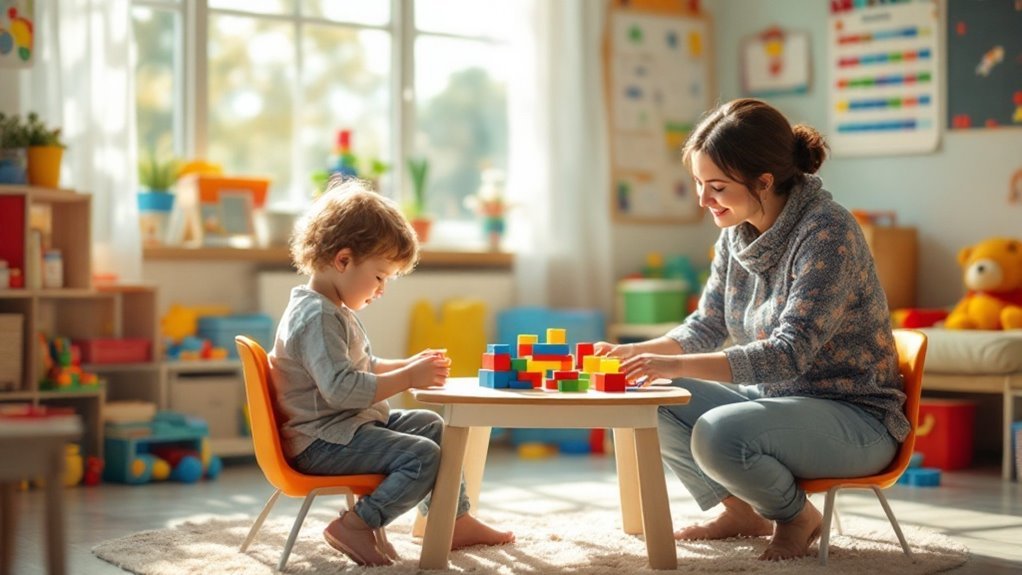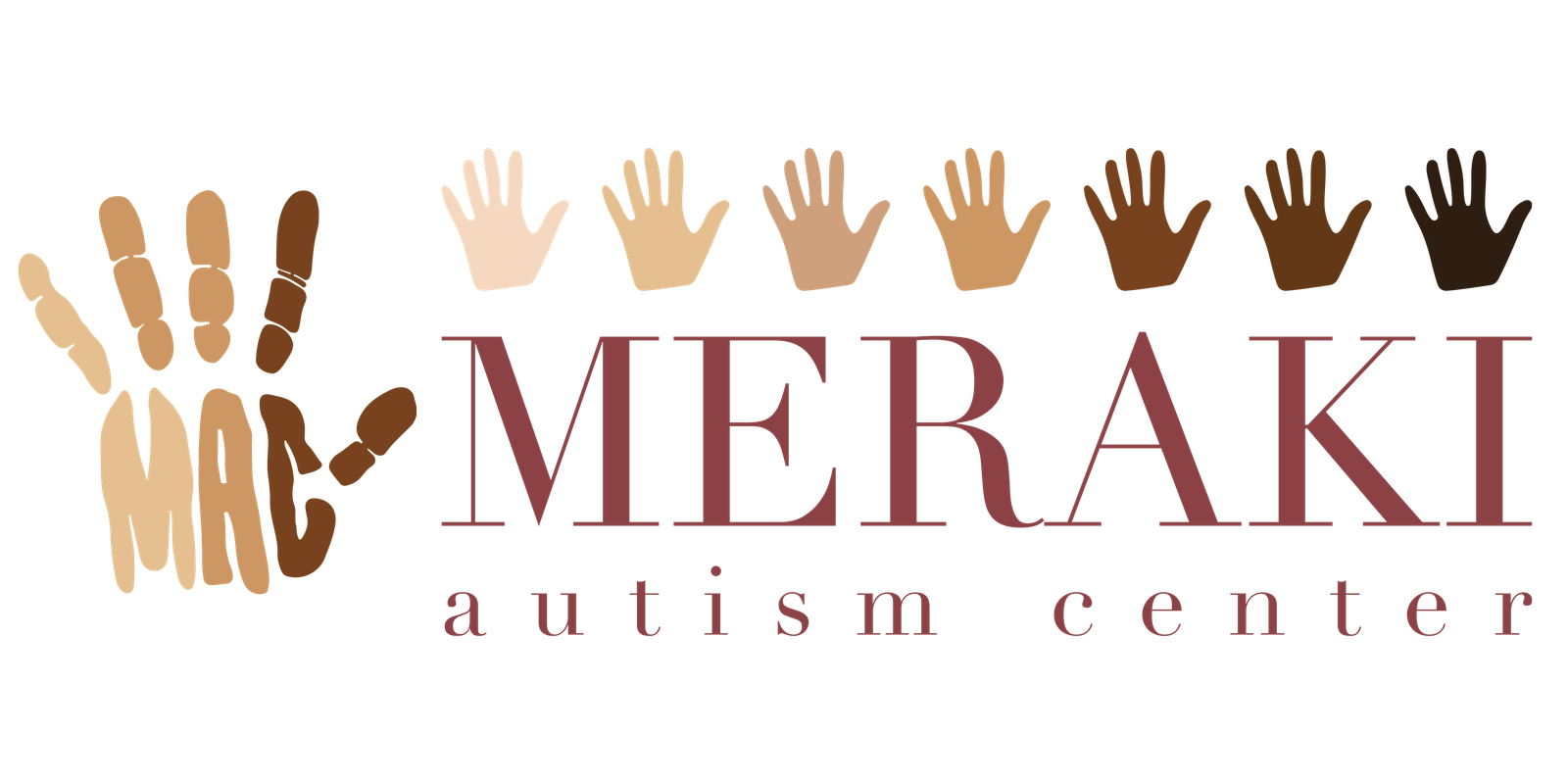ABA therapy offers fantastic benefits for children with autism, helping them thrive in everyday life. You'll see improvements in communication skills, making it easier for your child to express thoughts and feelings. It fosters social interactions, boosting confidence and helping them connect with peers. With a focus on independence, your child learns essential life skills, empowering them to make decisions on their own. As positive behaviors strengthen, family dynamics can also improve, bringing more joy into your lives. Curious about how these transformations can unfold? There's so much more to explore on how ABA therapy can change lives.
Key Takeaways
- ABA therapy enhances communication skills, enabling children with autism to express thoughts and feelings effectively through various methods.
- It improves social interaction, teaching essential skills like eye contact and sharing, fostering positive peer relationships.
- ABA promotes independence by focusing on daily living skills, empowering children to make decisions and complete tasks on their own.
- Positive behavioral changes result from ABA, helping children manage emotions, reduce frustration, and engage more confidently in social situations.
- Overall, ABA therapy creates a supportive environment, transforming family dynamics and fostering hope and joy for the future.
Understanding ABA Therapy

When you think about the journey of supporting a child with autism, understanding ABA therapy can be a game-changer. Applied Behavior Analysis (ABA) is a scientifically-backed approach that focuses on improving specific behaviors through positive reinforcement.
It's not just about changing behaviors; it's about nurturing skills and fostering independence in your child.
You might be wondering what that looks like in practice. ABA therapy often involves breaking down complex skills into smaller, manageable steps. This means your child can celebrate small victories along the way, building confidence and motivation.
Each session is tailored to meet your child's unique needs, ensuring they feel understood and supported.
As you explore ABA, you'll notice that the focus isn't solely on what your child can't do but rather on what they can achieve. You'll be encouraged to actively participate in the process, creating a collaborative environment that strengthens your bond.
Improved Communication Skills
Releasing improved communication skills is one of the most transformative benefits of ABA therapy for children with autism. When your child engages in ABA therapy, they learn how to express their thoughts and feelings more effectively. This can be a game-changer, not just for your child but for your entire family.
Imagine your child being able to ask for help, share their favorite things, or express their needs. These breakthroughs create a sense of connection and understanding that many families crave.
ABA therapy uses structured techniques to teach your child functional communication, whether through speech, sign language, or augmentative communication devices.
It's not just about speaking; it's about building confidence. As your child masters these skills, you'll notice them becoming more engaged in everyday situations, from conversations at home to interactions in the community.
Each small victory in communication can spark joy, not only for your child but for you as well.
Enhanced Social Interactions

Over time, many parents notice a remarkable change in their children's ability to interact socially, thanks to ABA therapy. Your child might start to engage more with peers, showing interest in their activities and even initiating conversations. This newfound confidence can transform playdates and group settings into enjoyable experiences instead of overwhelming ones.
ABA therapy focuses on teaching social skills through structured techniques, reinforcing positive social interactions. You'll see your child practicing eye contact, sharing toys, or taking turns in games, which can lead to deeper connections with others. These skills are essential, as they help your child navigate the complexities of social environments and build meaningful relationships.
As your child becomes more comfortable in social situations, you might notice a boost in their overall happiness and self-esteem. They no longer feel like an outsider; instead, they start to experience the joy of belonging and acceptance.
Increased Independence
In the journey toward greater independence, many parents find that ABA therapy can be a game-changer for their children with autism. This approach focuses on teaching essential skills that empower your child to navigate daily life with more confidence. Through structured lessons and positive reinforcement, ABA helps children learn how to manage tasks like dressing, grooming, and even following routines.
You might notice that your child begins to take initiative in their daily activities. They might start making simple decisions, such as choosing their clothes or selecting a snack, which can be incredibly rewarding for both of you. As they gain these skills, you'll likely find that they feel more accomplished and self-assured.
Moreover, increased independence can lead to improved self-esteem. When your child successfully completes tasks on their own, they experience a sense of achievement that boosts their confidence. This newfound independence often extends beyond home life, impacting their interactions in school and social settings.
In short, ABA therapy can equip your child with the tools they need to thrive independently, helping them embrace their unique journey while fostering a sense of belonging within their world.
Positive Behavioral Changes

Positive behavioral changes can be one of the most rewarding aspects of ABA therapy for children with autism. As you witness your child learn new skills and adapt their behaviors, it's truly uplifting. This therapy focuses on reinforcing positive behaviors, which means you'll see your child becoming more engaged, communicative, and socially aware.
Imagine the joy of seeing your child express their needs instead of melting down in frustration. With consistent support, they can develop essential skills such as sharing, taking turns, and even managing their emotions. These changes don't just impact your child; they ripple through your family and community. Friends and relatives will notice the difference, and you might find your social circles expanding as your child interacts more confidently with others.
ABA therapy isn't just about reducing challenging behaviors; it's about fostering growth and creating a sense of belonging. As your child progresses, you'll not only celebrate small victories but also build a deeper connection with them.
This journey of positive behavioral changes can truly transform your family's experience, offering hope, joy, and a brighter future together.
Frequently Asked Questions
How Long Does ABA Therapy Typically Last for Children?
ABA therapy usually lasts several months to a few years, depending on your child's needs and goals. You'll find that consistency and regular sessions can make a significant difference in their progress.
Is ABA Therapy Suitable for All Ages?
Yes, ABA therapy's suitable for all ages. It adapts to individual needs and helps develop essential skills, fostering growth and independence. You'll find it can create meaningful connections and positive changes at any stage of life.
What Qualifications Should an ABA Therapist Have?
When choosing an ABA therapist, look for credentials like a master's degree in psychology or education, certification from the Behavior Analyst Certification Board, and experience working with children. It really makes a difference in their support!
Can ABA Therapy Be Conducted at Home?
Absolutely, you can conduct ABA therapy at home! It creates a comfortable environment for your child, making it easier for them to learn and develop skills while maintaining a sense of security and familiarity.
Are There Any Potential Downsides to ABA Therapy?
While ABA therapy can be effective, some people find it rigid or overly focused on behavior. It's important to reflect on your child's individual needs and guarantee the approach feels supportive and nurturing for them.
Conclusion
Incorporating ABA therapy into your child's routine can be a game-changer. You'll likely see improvements in communication, social skills, and independence, making daily life smoother for both of you. Plus, the positive behavioral changes can create a more harmonious environment at home. Remember, every child is unique, and with the right support, they can thrive. Embracing ABA therapy might just be the step toward revealing your child's full potential. You've got this!









0 Comments